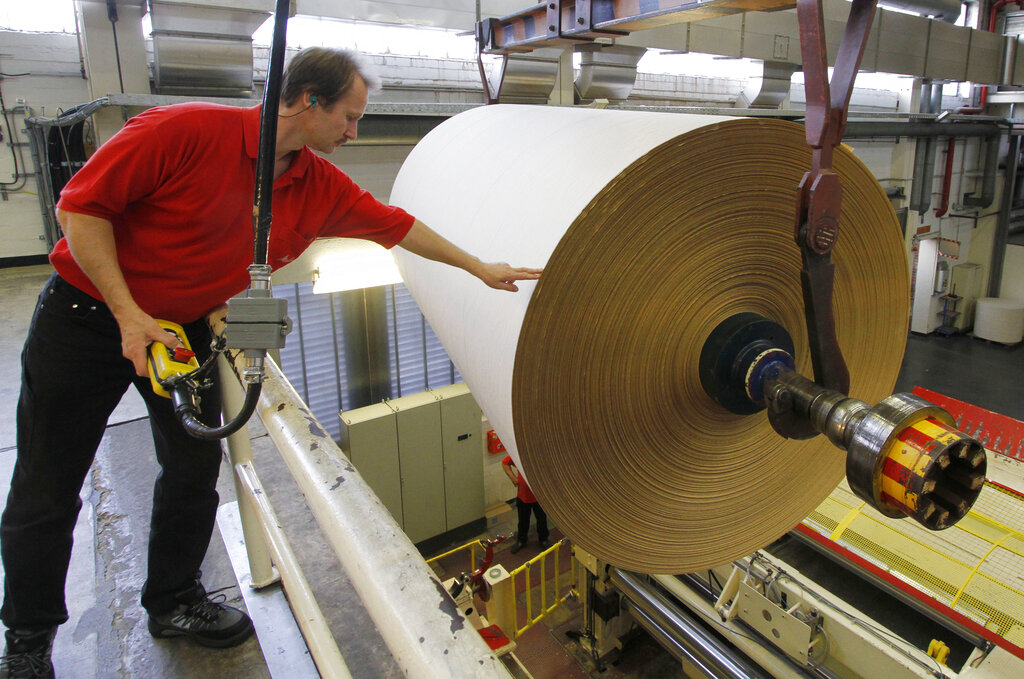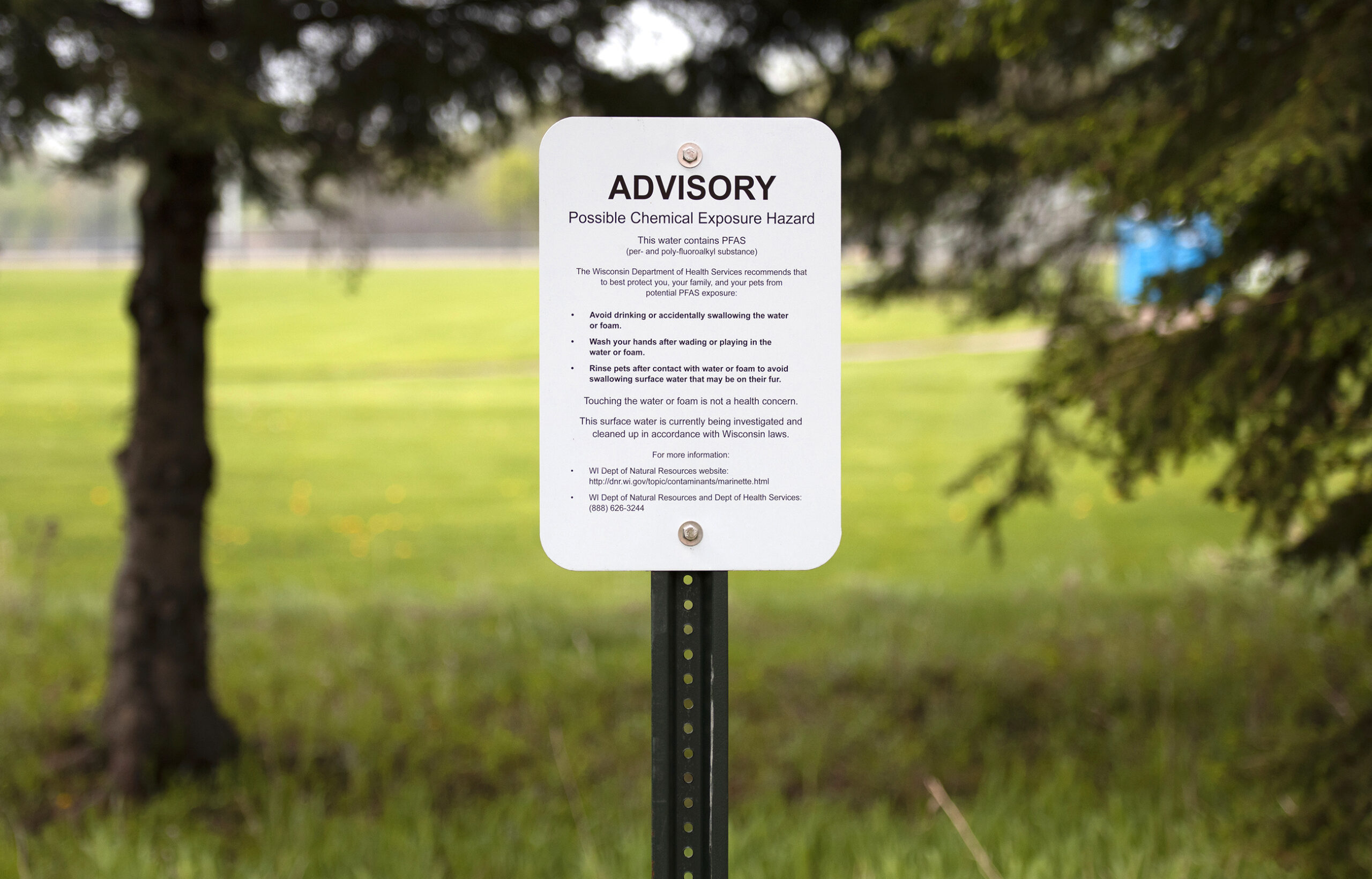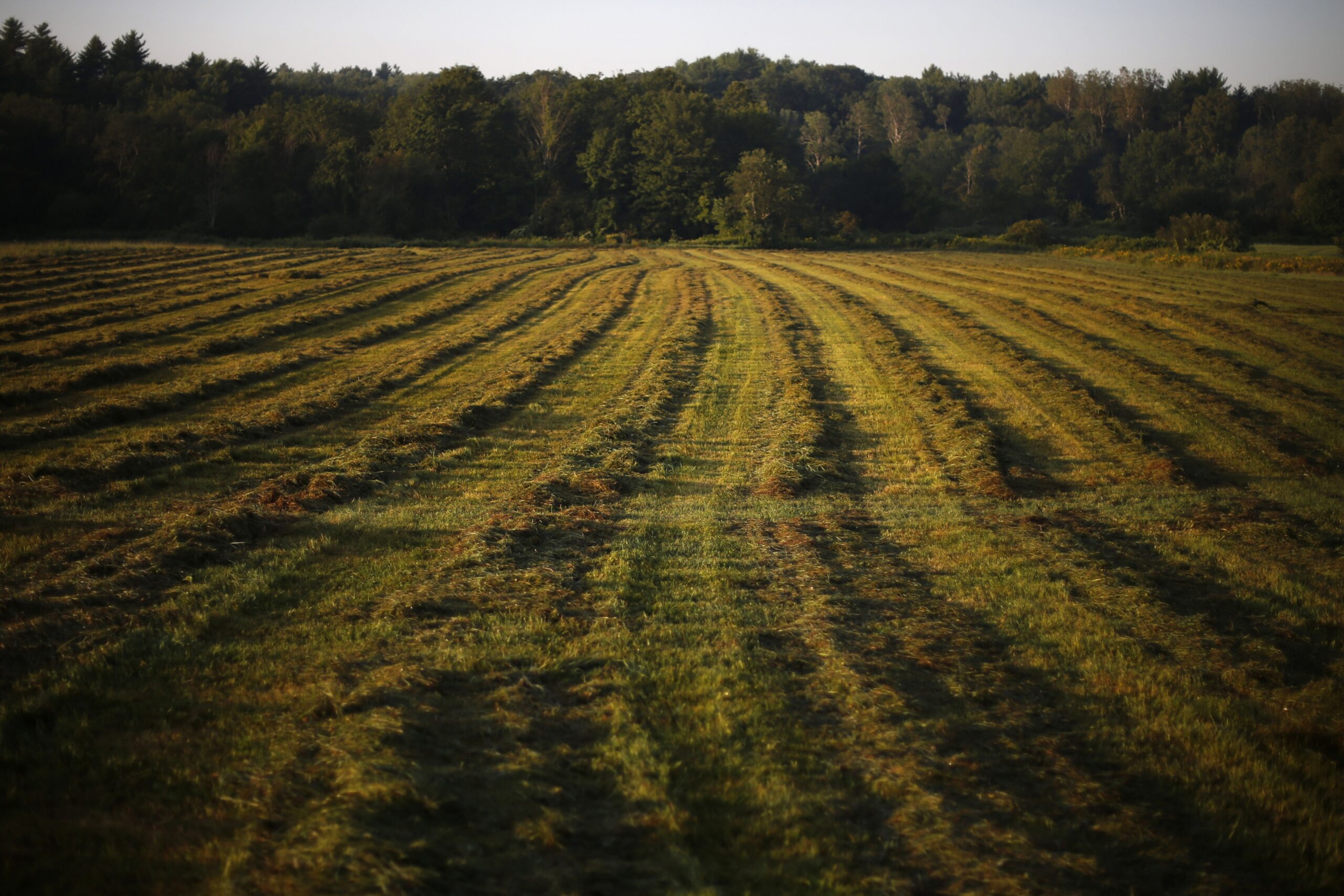A GOP lawmaker says he’s open to pursuing legislation that would restrict PFAS in certain products in Wisconsin, similar to a ban recently enacted by Minnesota.
State Sen. Eric Wimberger, R-Green Bay, made the remarks during a Wisconsin Health News panel discussion last week. The northeastern Wisconsin lawmaker is among Republicans who authored a bill that would spend tens of millions of dollars to help Wisconsin communities and landowners address PFAS pollution.
During the discussion, Wimberger said he was “very open” to sponsoring legislation that would restrict the use of PFAS in certain products. The GOP lawmaker said he hasn’t heard much opposition to eliminating the chemicals in products, saying the issue is more about ensuring enough time to phase out PFAS production. He said the paper industry uses the chemicals on some machines used to rewind toilet paper and other paper products.
News with a little more humanity
WPR’s “Wisconsin Today” newsletter keeps you connected to the state you love without feeling overwhelmed. No paywall. No agenda. No corporate filter.
“If you instantaneously shut it down, it would cause some major problems in a different way,” Wimberger said. “But some sort of transition in short order, I think, would get some support in the Legislature at this point.”
WPR reached out to Wimberger, who declined to speak further about banning PFAS.

Community, health advocates support PFAS ban
PFAS, short for per- and polyfluoroalkyl substances, are a class of thousands of synthetic chemicals used in cookware, food wrappers and firefighting foam. The chemicals don’t break down easily in the environment. Research shows high exposure to PFAS has been linked to kidney and testicular cancers, fertility issues, thyroid disease and reduced response to vaccines over time.
In Minnesota, lawmakers passed a ban this year known as Amara’s Law that restricts nonessential use of PFAS beginning in 2025. The law bars the sale or distribution of a long list of products that intentionally add PFAS. They include carpets, cookware, cosmetics, ski wax, cleaning products, dental floss, fabric treatments, juvenile products, menstruation products, textile furnishings and upholstered furniture. The law provides only limited exceptions for use of firefighting foam that contains PFAS at airports, refineries and within protective gear used by firefighters.
Community and health officials taking part in the discussion said they support efforts to ban PFAS, including Lee Donahue, supervisor in the Town of Campbell on French Island near La Crosse. The community has been dealing with PFAS contamination of more than 500 private wells.
“We have to address PFAS contamination in our state now, and I think we do that in a variety of ways,” Donahue said. “I think one is that we ban PFAS in manufacturing and industrial uses unless it’s absolutely as necessary as a piece of technical equipment that’s in a laboratory.”
Beth Neary, co-president of the Wisconsin Environmental Health Network, said the state’s current efforts to address the chemicals are not enough.
“If our neighbors in Minnesota can do legislation to stop the flow into the environment, why can’t we do that?” Neary said. “I thought Wisconsin was the environmental leader in this country.”
State’s largest business group would oppose PFAS ban
Not everyone agrees Wisconsin should pursue a ban, including Scott Manley, executive vice president of government relations for Wisconsin Manufacturers & Commerce.
“PFAS are safely used in thousands of consumer products that people utilize every day, including cars, mobile phones and medical devices,” Manley said in a statement. “Banning the use of PFAS in consumer products is a simplistic and misguided approach that misunderstands the different risk profiles associated with the thousands of different PFAS chemistries utilized today. WMC would strongly oppose legislation to do so.”
Scott Suder, president and CEO of the Wisconsin Paper Council, said the industry phased out two of the most widely studied chemicals — PFOA and PFOS — more than a decade ago. However, they were replaced by other chemicals known as “short-chain” PFAS that were previously assumed not to build up as much in the body.
The Food and Drug Administration has authorized some short-chain PFAS that’s used in grease-proof food packaging. However, more recent scientific research by the agency has since raised questions about its safety. Several manufacturers agreed to phase out use of certain PFAS by the end of the year.

Paper industry may support some proposal to ban PFAS
Suder said his group may support some type of legislation to ban PFAS, but he said the devil is in the details. He said paper mills use water and recycled material that may contain the chemicals.
“Without a national standard, it’s really confusing. We don’t want any of our operations or those future opportunities moving to other states because of over regulation,” Suder said. “We’re not saying we shouldn’t regulate. We have been working with policymakers across the aisle at the (Department of Natural Resources), at other agencies, to make regulations work and to make them balanced. But we also want to make them fair and don’t want any undertone of unintended consequences.”
Suder said industry officials would like to follow a national standard set forth by the U.S. Environmental Protection Agency rather than a patchwork of state regulations. He said that could lead to job loss among the more than 30,000 people employed in the state’s paper industry.
Communities across the state have been struggling with PFAS pollution of public and private wells, including Madison, Wausau, Marinette and the towns of Peshtigo and Stella.
Wisconsin Public Radio, © Copyright 2025, Board of Regents of the University of Wisconsin System and Wisconsin Educational Communications Board.







